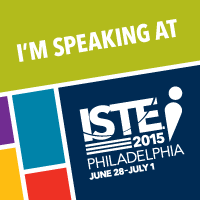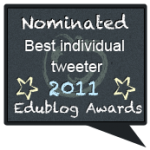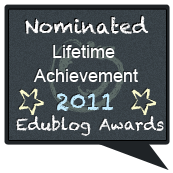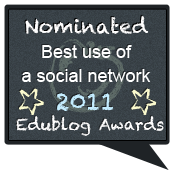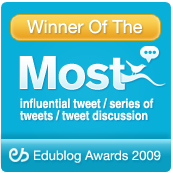 As adults we generally learn about things that we need to learn about. Of course we also have an opportunity to learn about things we would like to learn about. We do not have anyone assigning us projects, or books or exams for which to prepare. The exception to that would be the job requirements in a job that we have chosen. Theoretically, we work in a job that has some personal appeal, and the required learning for that job is something that ultimately, we have chosen to accept. When what appeals to us about that job wanes, we hold on to that job only as long as it takes to find another with a better, more appealing position. The learning and application of that learning again is a choice that we make for that new position. The learning is relevant in our new role.
As adults we generally learn about things that we need to learn about. Of course we also have an opportunity to learn about things we would like to learn about. We do not have anyone assigning us projects, or books or exams for which to prepare. The exception to that would be the job requirements in a job that we have chosen. Theoretically, we work in a job that has some personal appeal, and the required learning for that job is something that ultimately, we have chosen to accept. When what appeals to us about that job wanes, we hold on to that job only as long as it takes to find another with a better, more appealing position. The learning and application of that learning again is a choice that we make for that new position. The learning is relevant in our new role.
If all of this is true, then it should be evident that this is the life for which we are preparing our children. As a long-time educator, I am no longer convinced that we are adequately preparing our children with the needed skills to live, survive and thrive in their future life of that real world environment.
Additionally, I also question whether we, as education professionals, have been truly prepared for our present environment. Many of us grew up in a world where information came in printed form vetted by publishers. A world where TV producers vetted information produced for the airwaves. A world where opposing political views, for the most part, were discussed with words and not weapons. Yes, there were violent demonstrations, but nothing like the number of mass murder bombings of today. We trusted the printed word. We trusted the TV broadcasts. We, for the most part, trusted our political leaders. We trusted our institutions. We believed in the “tried and true”. With that as a background in our education, we now live in a world where little of that holds true. Any idiot can publish anything, truthful or not, and every idiot does. As adults, educated in an earlier time, are we prepared to learn and discern from the information delivered to us from news sources? In an age of instant access, are we skilled enough to analyze and understand what is being delivered to us second by second? Are we prepared to critically think about all that we are bombarded with daily? Are we prepared to accept that, just because things worked well in the past, they may need to be changed in this new world environment? What was once “tried and true” may now be tried, but irrelevant.
If the educators of our youth are struggling with skills required to strive and thrive in this, their own world today, how do they prepare children to learn, and adapt in the world in which these kids will be expected to live. A world that will advance even faster and more intensely than it is now. Technology only moves forward never back.
If we as adults have a say in what we want to learn, then why is this not what we are preparing our children to do. We assume that if we load them up with pre-selected content, that they will have enough preparation to handle anything in their adult life. Yes, we do need to give children a base of learned material from which they will be able to choose and make decisions, but we focus so much on building that base that we lose sight of why we are doing it. We never get to the part where kids pick what they want to learn, as well as how they want to go about learning it, and what platform to demonstrate their mastery of it.
The world in which our kids will live as adults does not look like the intellectually protected environment of the classroom. They will not learn things by subject categories in 45-minute segments. They will not have a person lecturing them on a given subject each and every day. They will not have the Internet, their main source of information, locked down or heavily scrubbed of sites. They will not have a prescribed set of standards to follow. They will not be limited by the shortcomings of anyone in charge of their information access. They should only be bound by their curiosity and love of learning, and not a lack of skills to retrieve, understand, critically analyze, and assess information.
Is this really the world that we are preparing them for? Are we stressing their curiosity? Are we challenging them to be critical thinkers? Are we enabling them with relevant technological skills to access, curate, communicate, collaborate, and create using information dealing with their passion? Are we allowing them to make mistakes and learn and adapt from them without consequences of punishment? Are we maintaining and advancing our own skills as professional educators to enable us to remain relevant in a rapidly changing world?
For some of these questions a very few educators can stand up and say, “Yes I do all of that”. Some educators could say, Yes, I do some of that”. We, as a system however, are falling way short in most of these important questions. What should our goal in education be?
We need to get our students in better position to make decisions in their own learning earlier on in the process and not assume that skill on graduation day. They need a greater voice in their own learning in order to own it before they leave our influence. They need to understand how to direct their curiosity to answer their own questions, to develop their own path, to address their own problems. We as educators need to shift the education dynamic of teaching kids what to learn to teaching kids how to learn. This is the best way we can provide for them a way to live in their world and not ours. Their world will come with all new rules and new problems that they will need to learn how to deal with in new ways unknown to us, their educators. Our goal should and must be to make our students self-motivated learners with all the skills needed to do that in their own world with their own tools for accessing information. Maybe instead of standardizing learning, we should work on standardizing teaching to be more openly supportive of teaching kids how to continue the process of learning in their lives beyond the classroom. If we are to better educate our kids, we need first to better educate their educators.



